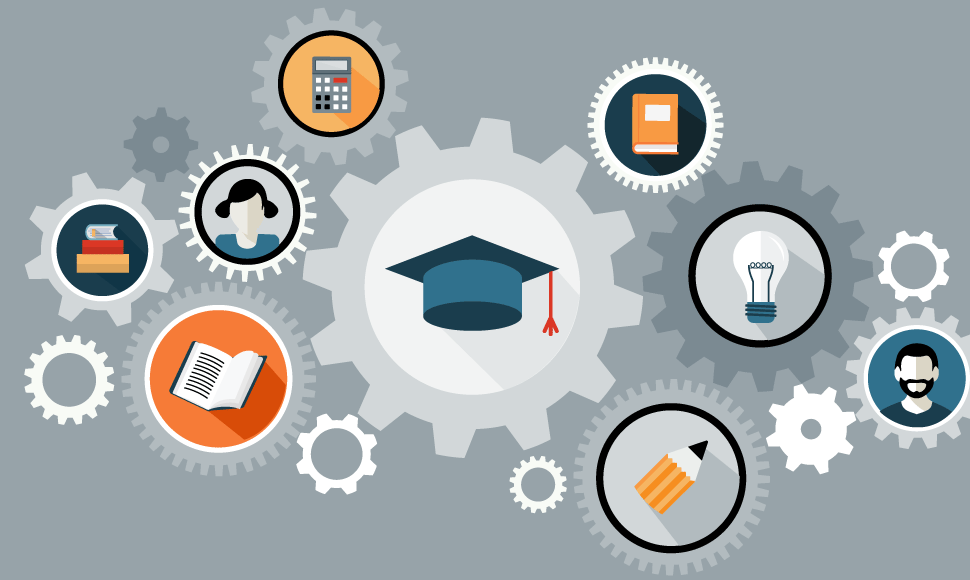
Passion for volunteerism, mentorship at the heart of UOPX corporate social responsibility efforts
By University of Phoenix
Employees embody University of Phoenix’s longstanding focuses on community-focused mentorship and volunteer efforts.
This article is featured in the University’s 2019 Academic Annual Report. Click here to view the report in its entirety.
As a 10-year-old, Harper Lines was unexpectedly diagnosed with type I diabetes. He had to learn to be hyperattentive to every calorie he ingested, plan every meal, exercise regularly, and have quick sugar access in his classroom in case his blood sugar plummeted. The diagnosis left him feeling disconnected from his peers
It wasn’t until he attended a youth camp near Prescott, Ariz., where volunteers assist camp staff, that he connected with other kids with diabetes and learned how to live with and manage his disease. The mentorship of the volunteers changed his life and became a testament to the power of volunteerism and service in the lives of others. He has volunteered at the camp annually ever since, to pay forward the invaluable support he received.
His passion for volunteering helped lead him to his current role as senior manager of corporate social responsibility at University of Phoenix. He oversees the University’s long-standing initiatives for giving back to the community through volunteer work and service. Each year, employees participate in thousands of volunteer hours, including mentoring, and nearly $300,000 in donations are made to community organizations to promote a two-fold social responsibility initiative focusing on education and serving underserved populations.
Lines said that the benefits of volunteering flow both ways between those served and those serving.
“When you volunteer, you submit to being the best version of yourself you can be,” Lines said. “There is something about volunteering that reminds you we’re all connected.”
Committed to community impact
University of Phoenix makes a concentrated commitment to community service by offering employees eight-to-12 opportunities for service across the Valley during the Community Counts Week each November. Employees are also encouraged to use two workdays each year in service to some community non-profit organization.
The University endeavors to participate in four service projects with community partners every month, and the Office of Military and Veteran Affairs typically has one such project. For instance, about 10 employees, including Lines, volunteer as mentors to juniors in high school who are part of the Jobs for Arizona’s Graduates program. Each week, they meet with their mentees, helping them think about and plan their futures.
Other volunteer efforts include hosting sessions where women from the Fresh Start Women’s Foundation can learn the soft skills they need to get and keep jobs, packing meals for local food banks and hosting year-round goodwill efforts with professional sports teams and community partners.
The University also makes annual donations to nearly a dozen organizations in Arizona, ranging from the Boys & Girls Club to the Arizona Education Foundation, Lines said. This is all part of UOPX’s mission to support organizations that embrace education and underserved populations.

Mentoring: A special kind of volunteering
Lines said that one of the most exciting parts of the job is to learn all the ways that employees volunteer and provide mentorship in their communities on their own outside of work. One such example is Saray Lopez, director of student diversity and inclusion in the Office of Diversity, Equity & Inclusion, who considers mentorship to be a requirement in the professional world.
Earlier this month – National Mentoring Month – Lopez received a frantic 6 a.m. text. It was from a young man she began mentoring three years ago as part of a three-month mentoring project for a Latino professionals organization. A recent college graduate, he was about to start a new job at an investment firm, and wondered if his shoes were appropriate.
She told him that his shoes were borderline too casual, and asked to see pictures of the pants and shirt he planned to wear. They were wrinkled, and she suggested he iron them before going to work. Often, young people who are the first in their families to work in professional or office jobs do not know what they don’t know, she said.
As a mentor, she can help young professionals learn the ropes, which she finds immensely rewarding.
“You’re helping someone see their power, helping them become empowered,” Lopez said of mentoring. “I never stop mentoring. Once they’re my mentee, they’re my mentee.”
Lopez oversees the University’s diversity-focused alliances with a number of organizations, such as Achieving My Purpose, which helps young women of color explore their career options.
The University hosts biweekly workshops featuring faculty or employees, who can teach the young women about financial planning or career exploration or self-care. She said that the University is helping create exposure to other women who look like them.
Lopez said the bonus of all the service programs for University employees is that they are better able to serve students from diverse backgrounds.
“They have another level of understanding and compassion they can provide toward our students.”


